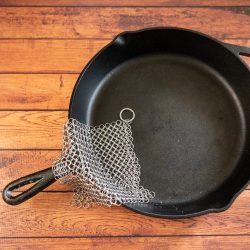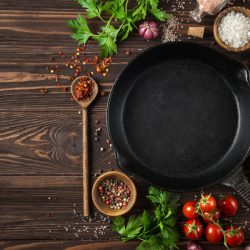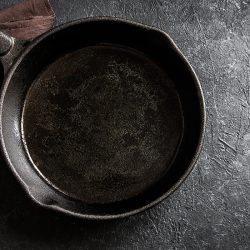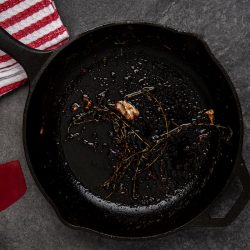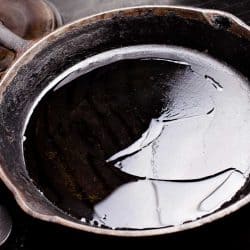One kitchen cooking utensil people swear by is cast iron. You can use it to make many dishes and recipes. However, the best part about cast iron is its nonstick properties. But — to be nonstick — it needs to be seasoned!
If you need help determining if your cast iron is seasoned, let's examine some characteristics.
Take a close look at the cast iron. How would you describe the appearance? If the cast iron is a dull grey color with a matte surface, you'll need to season it.
In contrast, seasoned cast iron will have a glassy look with a somewhat shiny and matte surface.
What did you find out about your cast iron? Sometimes it can be hard to tell if it's seasoned by just using your eyes.
There are other ways to determine if the cast iron needs seasoning. However, it involves getting a bit messy. In any case, we'll cover other concerns you might have.
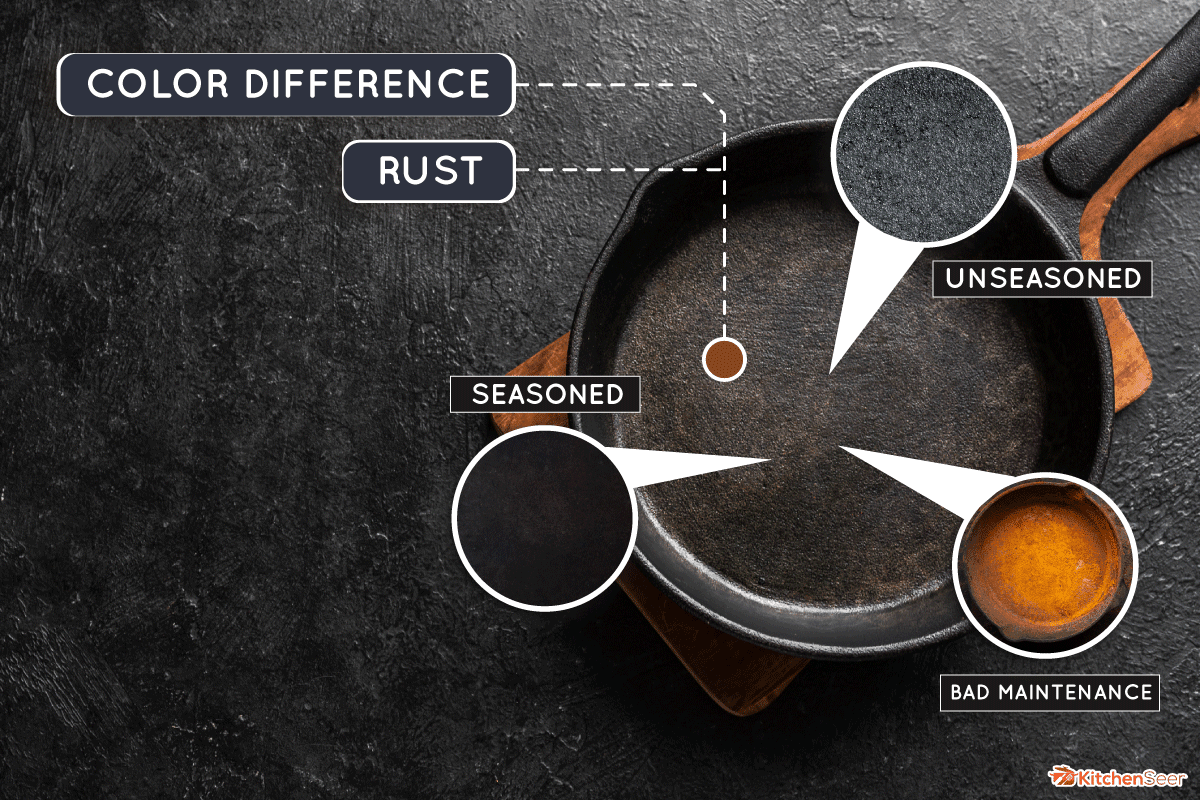
The Characteristics Of A Seasoned Cast Iron
If you're new to using cast iron, there's always room to learn. While they might be a reliable tool in the kitchen, cast iron needs more maintenance than a simple wash in the sink. Every once in a while, you'll need to season it.
However, how can you tell a seasoned cast iron apart from an unseasoned one? As mentioned earlier, you could always observe it using your eyes. Seasoned cast irons will have a glossy look to them.
On the other hand, unseasoned cast irons will have more of a matte look. In the worst case, it might even have rust. Here's a photo distinguishing the two:
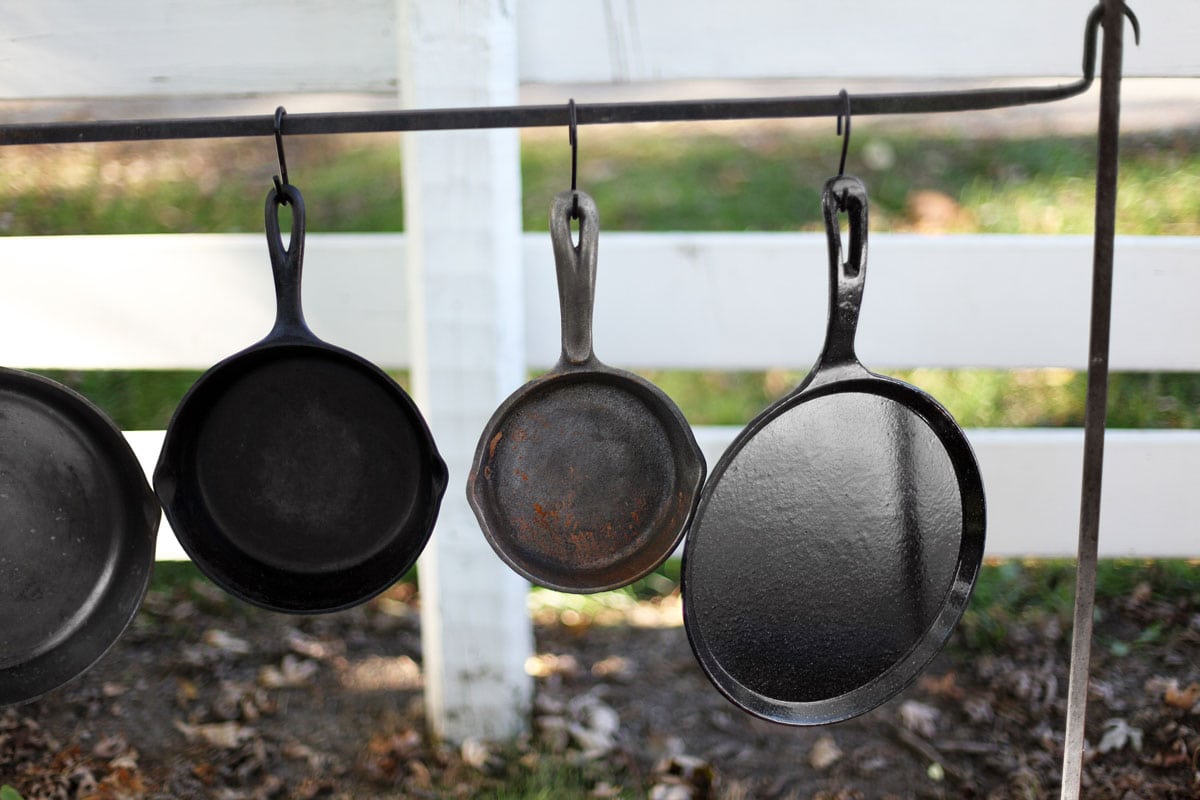
The Differences At An Eye Level
In the picture above, you'll see three cast irons hanging side by side. Our primary focus should be on the two on the right. One cast iron pan is smaller with orange discoloration; the other is noticeably larger and glossy in appearance.
It's a good representation of an unseasoned and seasoned cast iron pan. However, this isn't to say all unseasoned cast irons will have orange discoloration. Now, look at the first cast iron we ignored.
Compare it to the one we determined as seasoned. It's not as glossy as seasoned cast iron. Instead, it looks somewhat dry in the middle. The rest of it appears to be in good shape.
Nevertheless, it's a cast iron that could use more seasoning. Of course, this is just an observation. It might cook food without a problem. However, the only way to know is to have the cast irons in the photo.
Color Differences
Let's look at the differences in color between unseasoned and seasoned cast iron. Let's start with unseasoned cast iron.
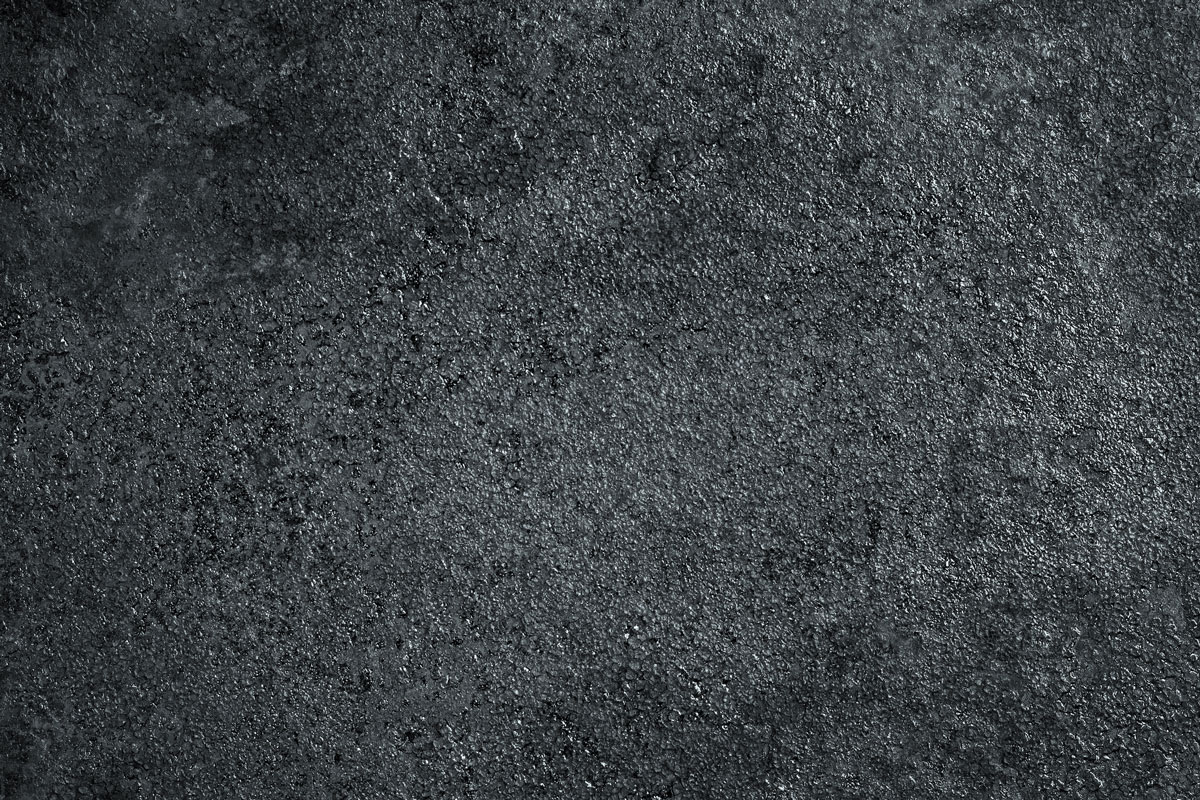
As you can see, the surface holds a grayish tone. However, some areas are darker. It's almost as if the gray area is dry. This color is what you would look for in an unseasoned cast iron pan.
Now, let's take a look at a seasoned one.
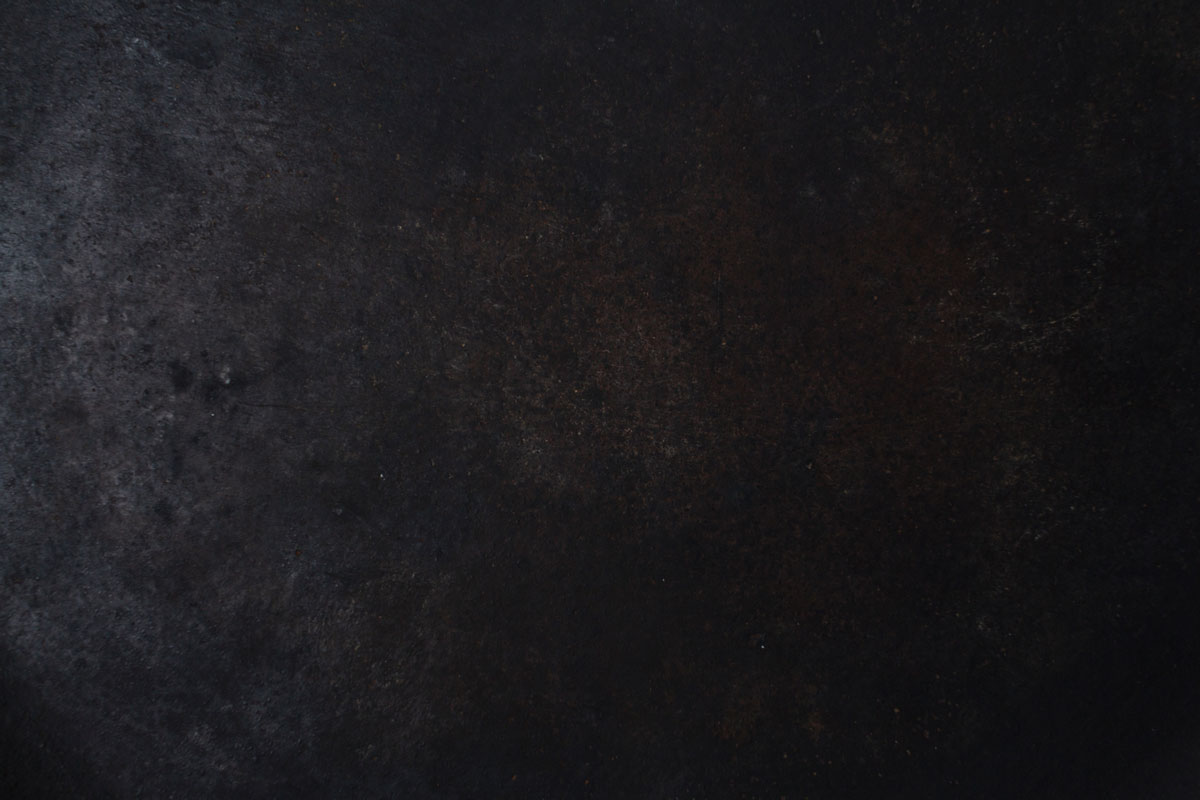
The difference between the two is striking. Seasoned cast iron looks much darker than an unseasoned one. In addition, it will also have some shine.
But, it won't be glistening like the photo with the three cast iron pans — keep in mind that it's getting a lot of daylight in that one.
Here's a closer look at a seasoned cast iron:
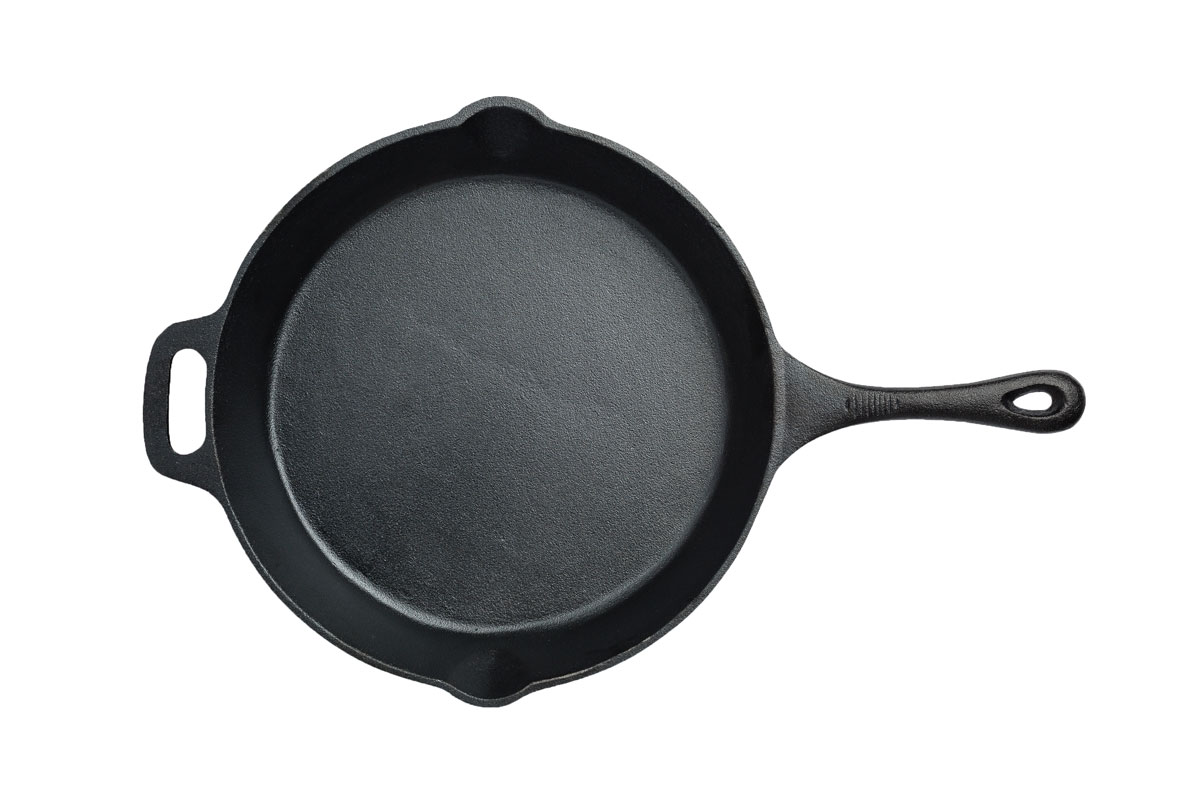
This color is appropriate for a cast iron handled with good care. It's not overwhelmingly shiny, but it's also not too dry. It has the correct amount of shine.
If you purchase a new cast iron, it might look darker and glossier than this. However, it will never look like the unseasoned cast iron two photos above.
Rust
You might be wondering—why is rust not a characteristic of an unseasoned pan? After all, seasoning is a protective layer. It prevents cast iron pans from rusting.
If a cast iron pan isn't seasoned, it will be more susceptible to rusting. While that is true, even seasoned pans can rust. All it takes is some careless handling.
Did you or someone else in your house leave the cast iron pan soaking in water? It's easy to make these mistakes. Water is the enemy of iron.
Leaving your cast iron wet for long periods can make it rust. For this reason, it's not a characteristic to look for in an unseasoned pan. It leans more towards bad maintenance.
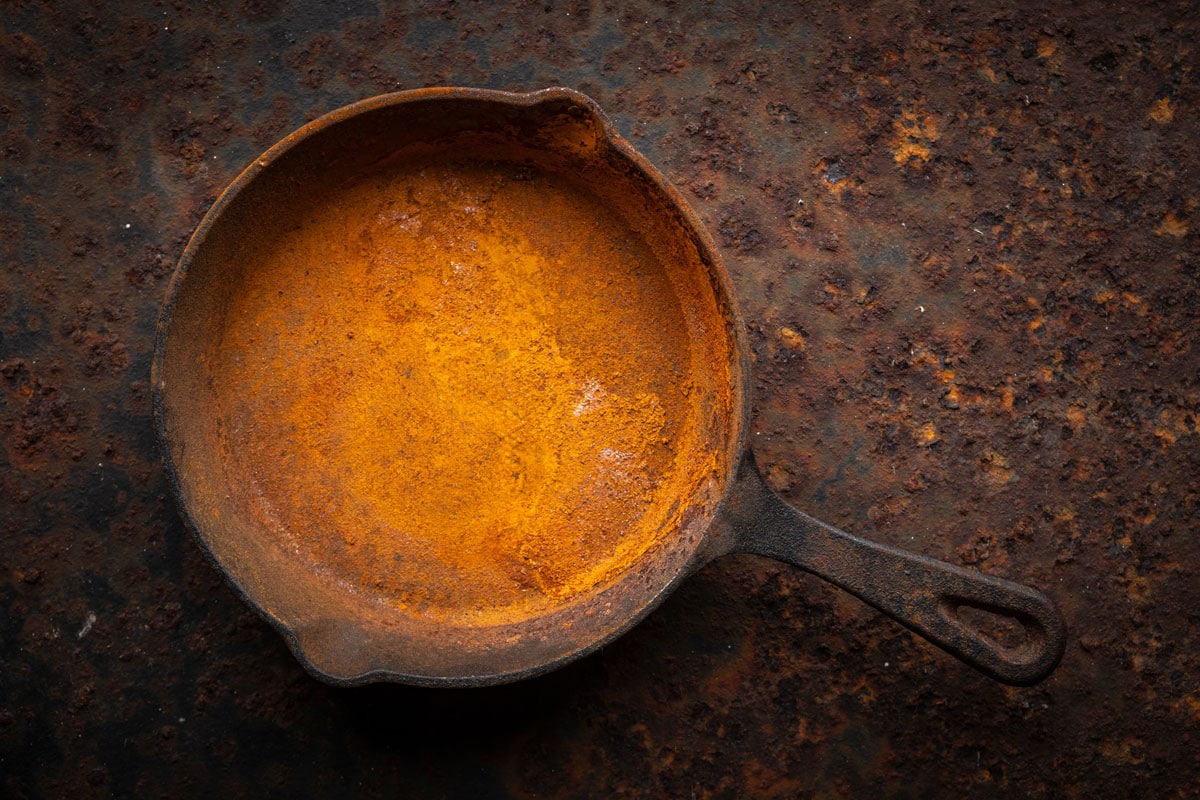
Cooking With A Unseasoned Cast Iron and Seasoned Cast Iron
If you can't tell the difference between the two by eye, you can always test it. More specifically, use the cast iron pan to prepare something. Of course, we want to limit the cleaning we'll have to do afterward.
So, don't attempt to cook anything too fancy. In this case, a simple omelet will do. First, start by preheating the cast iron pan.
Then, add some oil, crack an egg, and cook away. Now, let's focus on the most important part. How well does the egg come off the pan?
An unseasoned pan will have you resort to scraping it off. Otherwise, it should come off seamlessly. Of course, a bit of cooking experience helps here.
If you don't know how to use a cast iron, even a well-seasoned pan will have you scraping egg off of it. You'll always want to start at low heat. Then, as the cast iron gets hotter, increase the heat to your desired cooking temperature.
Cleaning
Once you finish making the omelet, the cleaning afterward might give you a headache. You'll have to scrub until you remove the egg debris.
Well-seasoned cast irons will be relatively spotless. You might have to scrape a bit of egg off, but it's no big deal.
How Long Does It Take To Season a Cast Iron?
Seasoning a cast iron pan or skillet isn't a tough job. You only need to coat it with oil and let it bake in the oven. However, it does take a bit of time to do.
If you find that your cast iron needs a bit of seasoning, make sure to have an hour or more time on your hands. The seasoning process takes place in the oven. So, you or another person should be home to turn it off once it finishes.
The oil needs time to bond to the metal. This process is called polymerization. In general, the fat [oil] turns into a form of plastic. After spending half an hour to an hour in the oven, the cast iron ends up with a hard blackened skin that protects it.
Seasoning The Cast Iron For Too Long
Try to avoid letting it hang longer than necessary in the oven. Letting it sit in high heat for too long isn't going to help — it's going to do the opposite! You'll only need to swipe the surface with a paper towel to see the damage.
The black specks you'll see are the seasoning. Fortunately, this doesn't mean you ruined the pan. However, it does mean that you must strip and reseason the pan.
Can You Season a Cast Iron Too Much?
Seasoning the cast iron a few times a year is necessary to prolong its life. However, there's a correct way and a wrong way to do it. Of course, you need to apply oil to the cast iron.
Yet, that doesn't mean you should go overboard with it — more isn't always better. There are two reasons why you should avoid using too much oil.
First, it's going to turn the cast iron sticky. Secondly, that sticky layer will be uneven and will eventually flake. You wouldn't want burnt flakes mixed in with your food.
Less is more in this situation. You only need about 1/8 to 1/4 teaspoon of oil to season the cooking surface; season the handles, sides, and bottom with an additional 1/8 or 1/4 teaspoon of oil.
What Is The Best Oil To Season Cast Iron?
If you find that your cast iron needs seasoning, you shouldn't reach for any random oil at your disposal. There's more to it than coating the cast iron with oil and heating it.
Generally, you can use any oil. However, you need to be aware of the smoking point. Then, adjust the temperature and time in the oven accordingly.
Otherwise, you will season the pan incorrectly. Cast iron manufacturers like Lodge recommend using vegetable or canola oil for seasoning. These two have a high smoke point, are affordable, and are available everywhere.
Click here to see this seasoning spray on Amazon.
Flaxseed is one of the better oils to use for seasoning. But it's more expensive and carries a strong smell.
Click here to see this flaxseed oil on Amazon.
Final Takeaway
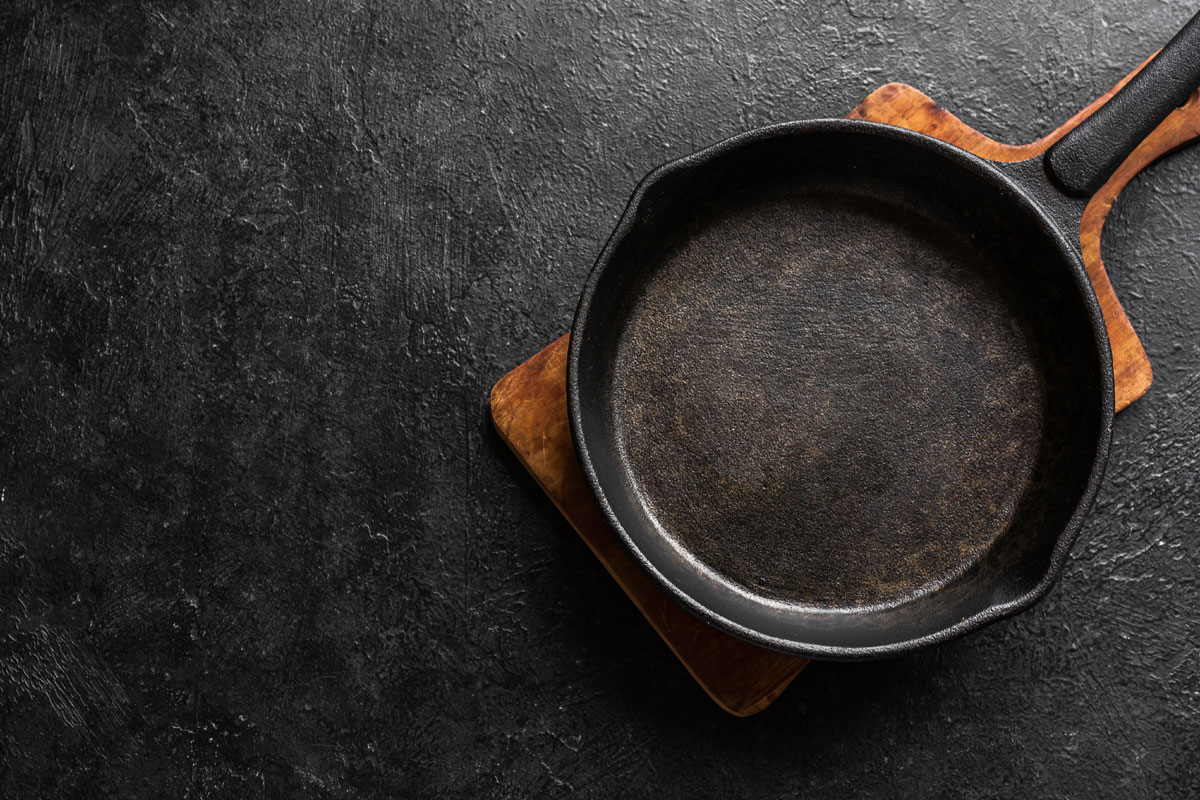
So, what do you think about your cast iron? Does it need seasoning? We hope you have enough details to determine this. If it does need seasoning, good luck with the process!
Before you go, do you have other cast iron concerns? What should you do if it's seasoned poorly? To find out, check out:
Poorly Seasoned Cast Iron: What To Do Now?
Are you planning to season your cast iron routinely? We can tell you more about how often you should do it. For more information, check out:
How Often Do You Season A Cast Iron Pan?



